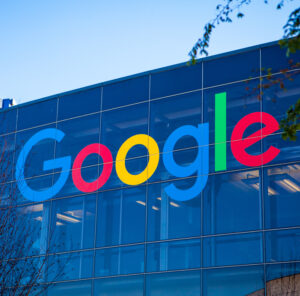Here’s today’s AdExchanger.com news round-up… Want it by email? Sign up here.
Listening Ears
Hear that? It’s the sound of TikTok doing the podcasting thing.
Insider reports that TikTok is testing a new “Podcasts” feature that allows users to continue listening to a program while TikTok runs in the background. Typically, leaving the app automatically pauses a video.
So, why would TikTok get into podcasts? For one, podcast ad spend is expected to reach the $2.25 billion mark this year, according to Insider Intelligence, and TikTok is also already a viable competitor to the podcast incumbents (Apple, Spotify and YouTube).
Also, this podcast trial isn’t TikTok’s first foray into streaming audio. In March of last year, TikTok launched SoundOn, a song distribution service that lets creators post their own music or prerelease tracks and earn royalties. On top of that, parent company ByteDance’s internal music and audio R&D team released a product called Mawf, which is a synthesizer and sound-editing plugin.
Continuously running video in the background isn’t a huge ad revenue opportunity – people can’t see any ads that might play – but the new feature will be a nice boost to TikTok’s attention metrics, since it would credit the app with all that time even when users aren’t actively engaged.
The Search Continues
Speaking of TikTok, the app has a real opportunity to upend Google Search.
In TikTok’s latest TV and video ad campaign in the UK, the company clearly aims to position itself as the quicker, better version of Google Search and YouTube for things like quick recipes, household cleaning and construction tips, book reviews and assorted life hacks.
A couple of years ago, TikTok’s tagline in the West was “It starts on TikTok,” which helped reinforce the network’s virality and ability to shape real-world trends.
Now TikTok is going with “Search it, learn it, do it with TikTok.” Not very subtle.
TikTok isn’t the only example of a company looking for a slice of search. If Microsoft Bing can integrate the ChatGPT conversational AI into search queries this year, expect a Microsoft ad campaign touting its unique search capabilities. Like TikTok, Microsoft probably won’t namecheck Google, but that doesn’t mean it’s not trying to eat Google’s lunch (and YouTube’s lunch, too).
Even a small fraction of Google’s search market share is worth billions of dollars.
’Flix Fix
Netflix is setting its sights beyond the US with its new ad plan.
The streamer announced an expansion of its partnership with Nielsen on Wednesday that will give advertisers measurement data in the US, Mexico and Poland.
Netflix will subscribe to cross-platform audience insights derived from streaming panels in Poland and Mexico, and to Nielsen’s national TV measurement data and streaming platform ratings in the US.
TV execs question Netflix’s choice of Nielsen for measurement because panels and ratings are losing ground to alternative currencies. But, to be fair, Nielsen is trying.
The TV ratings incumbent recently released the first version of its revamped measurement platform, Nielsen ONE, last week. The new module combines Nielsen’s traditional linear metrics with second-by-second viewership for comparability with streaming, although those more advanced data points are available only for planning, not for buying (yet). Still, it’s a step in the right direction.
“We’re getting closer to deduplicated metrics across screens,” Nielsen’s SVP of product management, Kim Gilberti, says in the announcement.
Expanding its partnership with Netflix will help Nielsen get there.
But Wait, There’s More!
Discord acquires Gas, the popular app that teens use to compliment each other. [The Verge]
Brand publishers distance themselves from “content marketing.” [Toolkits]
2022 global smartphone shipments were the lowest in nearly a decade. [TechCrunch]
Why Edelman’s Trust Barometer is undermined by its work with fossil fuels. [The Drum]
Publishers lament the removal of Twitter Moments as referral traffic dips. [Digiday]
Websites selling abortion pills are sharing sensitive data with Google. [ProPublica]
You’re Hired!
Dentsu X promotes Leah Meranus to CEO for North America. [Adweek]















